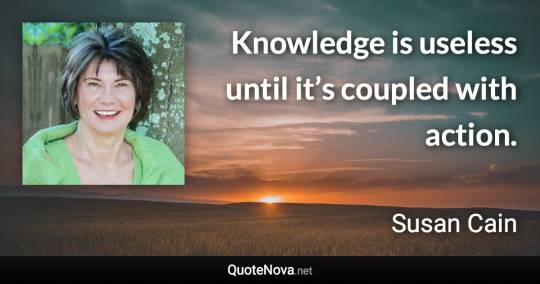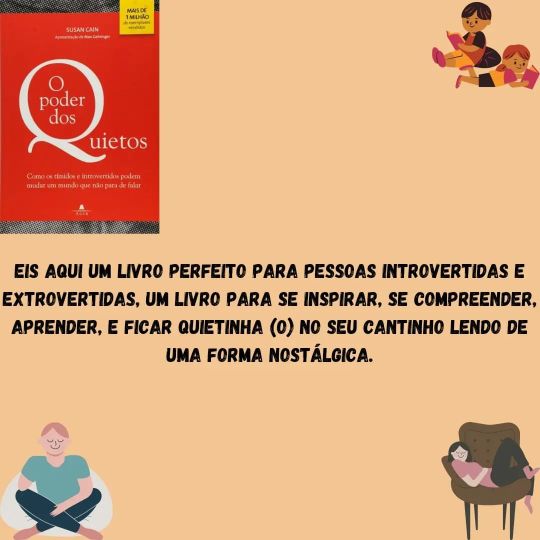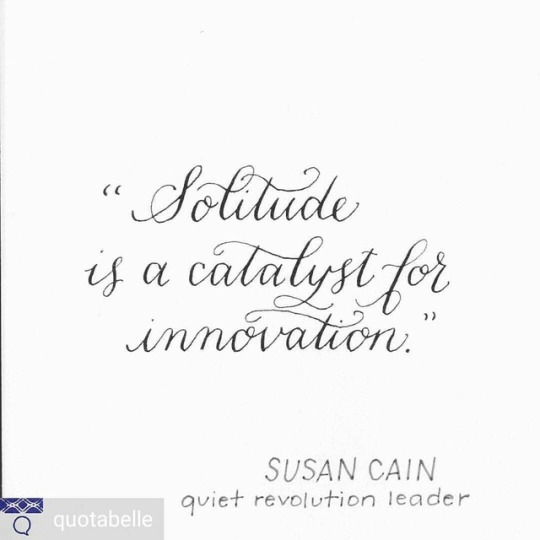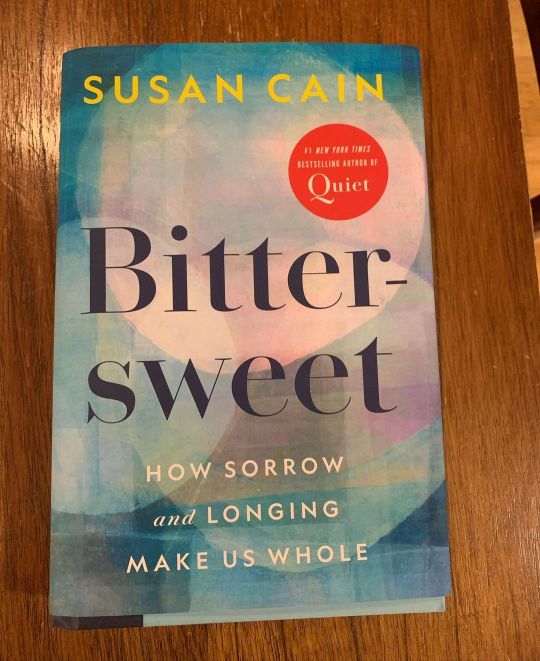#susancain
Explore tagged Tumblr posts
Text
You Should Be Proud of Being an Introvert

Photo by Cassie Boca on Unsplash
It’s Saturday night, and I’m home alone.
While the whole city around me is probably out partying, I’m in my room listening to my favorite lo-fi playlist on Spotify, snacking on some popcorn, and typing away on my computer — it might sound like a wasted Saturday night for most of you, but let me tell you, I couldn’t be more in my element.
Don’t get me wrong, I would go crazy if I never got out of my house, but in this stimuli-filled world, I can only stand so many hours of social interaction before I feel completely drained and need some me time to recharge my batteries. The same is true for university, for example: While I enjoy attending certain lectures and seminars, I still perform better on my exams if I’m able to prepare by myself, which is why the silence and calmness of my room are much appreciated. Even when it comes to work, I have no problem following orders, but most of the time I’m better off doing things on my own anyway.
I’ll just go ahead and say it, I’m an introvert.
As I write this, something feels off and the same question keeps on popping into my head: Why should I even have to convince people that being an introvert is a good thing?
The problem is, in Anaïs Nin’s words, that our culture made a virtue of living only as extroverts.
In today’s society, introversion is often seen as an undesirable trait. Even I myself, as an introvert, used to think that way. As a teenager you could often catch me staring at the extroverted kids, thinking, why can’t I be like that?
Luckily, that’s not the way I look at it anymore, and I’m here to tell you why you shouldn’t either. To be completely honest, I’m quite happy with the person I’m turning out to be, and I believe it was, to a great extent, my introverted self who made me the man I am today.
We think before we speak
I admit it, we don’t talk much, but is that really a bad thing?
As introverts, we usually feel less comfortable talking, so we take our time before we actually decide to do so. But think about it, if we’re not talking, that means we’re listening. If we’re not talking, that means we’re choosing the right words to properly express ourselves. If we’re not talking, that means we feel there’s nothing worth saying — we like to focus on quality, not quantity, so that when we do talk, we actually add value to the conversation.
My grandmother used to say that I rarely spoke during arguments, but when I did, it was like my words slapped everyone in the face.
Put differently, if you think before speaking, you can carefully pick and choose what you say, which then allows for your words to have a bigger impact. Now don’t get me wrong, talking a lot isn’t necessarily the problem,talking for talking’s sake is — or, as Stuart Wilde puts it in his book “Silent Power”:
“Most people talk too much, and what they do say is often just noise or irrelevant gibberish designed to keep themselves entertained.”
The ability to just shut up and listen allows us to do more than just thinking before speaking, though:
We make deep connections
Yes, our social circle is probably smaller than that of an extrovert, but remember, quality, not quantity.
I recently watched a TedTalk by Dr. Raj Persaud,”The Psychology of Seduction”, and out of the 16-minute talk, there was something that I found particularly interesting: Dr. Raj explains how there are three “phases” to a relationship — attention, interest, and maintenance. Apparently, extroverts are better at catching the interest and attention of a potential lover, introverted people, on the other hand, are better at maintaining the relationship.
While Dr. Raj’s seduction tips were probably developed with romantic relationships in mind, I think the theory applies to any type of connection between two human beings.
As introverts, we often have a harder time making friends, let alone flirting with someone we find attractive, but the few times we are able to take down that interest/attention barrier that extroverts can so effortlessly walk through, the bond we create is long-lasting and, dare I say, indestructible. Some of the closest people to me are childhood friends that I now rarely see, others I met randomly through life and hang out with almost daily — but regardless of the frequency with which we see each other, regardless of how, when or where we met, I know I can count on them at any time, for anything.
I can count these people on one hand, and I wouldn’t have it any other way — I don’t need, and to be honest don’t want, a bunch of mere acquaintances to hang out with every time I have nothing better to do:
We feel comfortable being alone
We’re not socially awkward, we’re not antisocial, we’re not lonely — but we’re comfortable even with no one’s company but our own.
Our society is pretty much built by extroverts, for extroverts: At school they push you to come out of your shell, at work they highly encourage group brainstorming sessions; the world pretty much teaches us, from a very young age, that we must become more extroverted. While there isn’t anything inherently wrong with any of that, you can’t deny that, as a society, we’ve lost a basic yet foundational capability, being alone with our thoughts.
In his Pensees, philosopher Blaise Pascal wrote that “all of humanity’s problems, stem from man’s inability to seat quietly in a room alone.”
I don’t know if I fully agree with such an extreme statement, but I definitely get Pascal’s point: Most people nowadays can’t even fathom spending a Saturday night at home.
Yet here I am, Saturday night, talking to you through my computer, writing, and listening to music, all by myself. I’d be lying if I said I stay at home every day and night of the week, but I do find myself craving more alone time than most of my peers — as an introvert, I have a preference for more quiet, minimally stimulating environments, which is why I’m not only comfortable, I actually enjoy seating quietly in a room, alone.
Bill Gates, for example, is living proof of how introverts enjoy and actually thrive during their alone time: He is arguably the most successful introvert on this planet, and from time to time he likes to have what he calls “think weeks”.
Matthias Reumann
wrote a great article on them, but in short, a think week is a week in which Gates decides to go off the grid, separate from civilization and just reflect and ponder on different subjects, like the future of technology.
Who would’ve thought, Bill Gates, the co-founder and chairman of Microsoft, an introvert:
We make great leaders
Unexpected, right?
I don’t think there’s a scientifically-proven list of qualities needed for great leadership, but if I asked you to come up with one yourself, what would you write down? It would probably look something like this: Assertive, talkative, sociable, action-oriented, confident — extroverts are usually regarded by society as natural born leaders, and honestly, I can see why.
I can see why, but are they actually right?
According to the data, not completely: In 2012 Susan Cain published a book called “Quiet: The Power of Introverts in a World That Can’t Stop Talking”, and the whole second chapter was pretty much dedicated to debunking this myth. As she puts it:
“Extroverts are routinely chosen for leadership positions and introverts are looked over, even though introverts often deliver better outcomes.”
The numbers speak clearly, our world population is equally divided: Half introverts, half extroverts, give or take. Still, according to a study presented by the Wall Street Journal, only 5% of midlevel managers are considered introverts, the number goes down to 3% when it comes to executives, and as low as 2% for top executives.
As you can see, not many introverts get to those leadership positions, but the few who do, tend to deliver incredible results.
Elon Musk, Warren Buffet, Mahatma Gandhi, Rosa Parks, Abraham Lincoln. Whether it be running a company, a country, or a movement, these names have had a massive influence in their respective fields, and they are/were all introverts.
According to Cain, the secret behind these quiet leaders’ successful leadership, can be boiled down to two main factors:
By nature, us introverts, tend to get extremely passionate about the matters that interest us in life. Passion for our work, a cause, or a mission, allows us to gain expertise, inspire trust, and make alliances — in other words, when the people we are leading feel that commitment, they too get inspired and fully invest themselves in that work, cause, or mission.
A less romantic, yet fundamental aspect of quiet leadership, is our ability to listen: “Introverted leaders tend to solicit ideas from other people and listen to those ideas and use them, so there is not as much of a brain drain”, said Cain in an interview with WorkHuman Radio.
Before I let you go, I’d like to clear one thing up: This is in no way, shape or form an attack on extroverted people.
I just thought it’d be nice to, for once, praise all the introverts out there.
We are used to being told that we should talk more, open up more, go out more, but I firmly believe that thinking more, pondering more, and reflecting more, is equally as important.
So, to all my fellow introverts out there, keep being yourself, and remember:
“Spend your free time the way you like, not the way you think you’re supposed to.” — Susan Cain
#introverts#introverted#extroverted#susancain#cain#weird#leadership#silent#alone#lonely#loneliness#talkative#calm#introversion
4 notes
·
View notes
Text
The Neverending Reading List: Book LXVI

"Quiet Power: The Secret Strengths of Introverted Kids" by Susan Cain
BEING QUIET ISN’T A WEAKNESS. IT’S A SUPERPOWER.
Too quiet to change the world? No such thing. Introverts throughout history have accomplished incredible feats because of their quiet personalities, not in spite of them. From class presidents to musical theater performers to video gamers to explorers, introverted teens are often able to use their quiet nature to their advantage. Find out how you, too, can inspire those around you.
—
SUSAN CAIN is a graduate of Princeton and Harvard Law School who worked as a corporate lawyer before deciding to write Quiet and then devote herself to the cause of empowering introverts. Her book has been a New York Times bestseller for well over a year, has won numerous awards, and has been translated into more than thirty-five languages. Susan lives with her husband and two children on the banks of the Hudson River in New York.
Read more about her, and join the Quiet Revolution community, at quietrev.com.
~~~~~~~~~~~~~~~~~~~~~~~~~~~~~~~~~~~~~~~~~~~~~~~~
I call my book collection The Neverending Reading List! To see why, and the list of books I’ve already shared, click here! Interested in the book? Snag it real quick here! Enjoy what I do? Please consider supporting via Buy Me a Coffee! Like what you see and want to know when there’s more? Click here to subscribe for updates and/or hit the Follow button! For more about MonriaTitans, click here! Watch MonriaTitans on Twitch, YouTube, and Rumble!
—
#AffiliateLink#BecomeSmarterEveryday#Bibliophile#Book#BookAddict#BookCollection#BookList#BookLover#BookObsession#BookPost#Books#BooksAreLife#Bookshoporg#BookSummary#Introversion#IntrovertedKids#LearnSomethingNewEveryday#MonriaTitans#MT#Neverending#NeverendingReadingList#NRL#OaT#Psychology#QuietPersonalities#QuietPower#ReaderProblems#ReadingIsEssential#SocialScience#SusanCain
0 notes
Text
You have the power of persistence, the tenacity to solve complex problems, and the clear-sightedness to avoid pitfalls that trip others up. You enjoy relative freedom from temptations of superficial prices like money and status. Indeed, your biggest challenge may be to fully harness your strengths. You may be so busy trying to appear like a zestful, reward-sensitive, extrovert that you undervalue your own talents, or feel underestimated by those around you. But when you're focused on a project that you care about, you probably find that your energy is boundless.
---
Susan Cain, Quiet: The Power of Introverts in a World That Can't Stop Talking
0 notes
Photo

Knowledge is useless until it's coupled with action. https://www.quotenova.net/authors/susan-cain/xb5kea
0 notes
Quote
Whatever pain you can't get rid of, make it your creative offering.
Susan Cain, Bittersweet: How Sorrow and Longing Make Us Whole
#bittersweet#susan cain#susancain#book#quotes#bookquotes#book quotes#mentalhealthawareness#mental health awarenss#mentalhealthmatters#mental health matters#unlocking us
51 notes
·
View notes
Quote
Lips shut tight—brain, a chatterbox.
Lady Macabre Beth
#introvert#introverts#susancain#thepowerofintroverts#silenceispower#thepowerofintrovertsinaworldthatcantshutup#quiet#intj#intp#infj#infp#istj#istp#isfj#isfp#introverted#quietpeople#introvertedpeople#quietpeoplearepowerful#introvertshavetheloudestminds#quietpeoplehavetheloudestminds
16 notes
·
View notes
Photo

Eu me descobri bastante nesse livro, descobri de onde vem minha tagarelisse, e está tudo bem se encaixar na ambiverção, mas amar o cantinho de uma escrivaninha à grandes apresentações escolares, e falar apaixonadamente de algo que realmente me importa e que eu passei ou passo anos pesquisando, como autismo, Richter, artes, escritores e pesquisadores divertidos está tudo bem, assim como não há problema em gostar de um quarto o dia todo ou querer comunicar com as pessoas, está tudo certo. A comunicação escrita pode ser tão poderosa quanto a comunicação produzida por ondas mecânicas dos pulmões além do epiglote, faringe, laringe e outras partes do corpo, prova disso são as escritas rupestres que permaneceram mesmo depois de millares de anos. O Poder dos Quietos é fruto de cinco anos de pesquisa da advogada e introvertida Susan Cain, ela se estudou, e estudou sobre as pessoas com cérebros reativos através de pesquisas de outros estudiosos, aqui ela mostra tanto o poder dos introvertidos quanto extrovertidos, e como esses grupos podem se unir e transformar nossa mundo. Se você se sente uma pessoa estranha na era da comunicação esse é um livro para se descobrir, e se você é um aparente extrovertido mas em dados momentos sente um mercúrio em seu interior, esse é um livro para descobrir seu silêncio interior, e se você é um ambivertido é um livro para conciliar sua introversão e extroversão. #livro #book #livre #susancain https://www.instagram.com/p/CdQUanOO2iC/?igshid=NGJjMDIxMWI=
4 notes
·
View notes
Photo

Comprei esse livro há umas duas semanas, mas só vou poder começar a ler agora. Porque meu jovem quieto de 14 anos, que em geral não gosta de ler, pegou o livro assim que cheguei em casa com ele e leu inteiro. Então acho que o livro está aprovado, né? A autora diz que o livro foi planejado para poder ser lido por jovens a partir dos 12 anos. Consegui, a muito custo, que meu pequeno grande introvertido me dissesse duas palavras sobre o livro: Sim e Foi. Kkk Eu perguntei se ele gostou, e se o livro foi útil pra ele. Esse meu introvertido passa horas no computador desenhando em sua mesa digitalizadora, e faz desenhos e animações lindos! E ontem vendeu seu primeiro desenho pela internet: um retrato/avatar personalizado para alguém que ele não sabe bem como o encontrou. "O Poder dos Quietos para Jovens - Como fortalecer as capacidades secretas da nova geração de introvertidos" A propósito, aqui em casa somos três introvertidos e um ambivertido. PS1: Introversão não é timidez. 😉 PS2: Postagem de out/2018 do perfil pessoal, que agora reproduzo aqui. O caçula está com 17. #quietrev #quietrevolution #opoderdosquietos #livro #adolescentes #timidez #introvertidos #susancain https://www.instagram.com/p/CVP3W4mFiFT/?utm_medium=tumblr
6 notes
·
View notes
Video
vimeo
THE POWER OF INTROVERTS
Quiet: The Power of Introverts in a World That Can't Stop Talking is a book written by Susan Cain. The book explains how Western culture transformed from a culture of character to a culture of personality in which an "extrovert ideal" dominates and introversion is undervalued and even seen as inferior. Cain, a self-described introvert, made a passionate talk about the subject (TED 2012) and prepared a delighful animation illustrated by Molly Crabapple that is completely worth watching.
#susancain#animation#short-film#introverts#extroverts#mollycrabapple#society#leadership#illustration
5 notes
·
View notes
Photo

Reposted from @quotabelle - “Solitude is a catalyst for innovation.” ~ Susan Cain . . Thinking... #BeautifullySaid by #susancain #introvert #innovator #quietrevolution #tedtalks #quotabelle - #regrann https://www.instagram.com/p/BtI9d8ygKem/?utm_source=ig_tumblr_share&igshid=1gyzi3y21n3t2
4 notes
·
View notes
Quote
Evangelicalism has taken the Extrovert Ideal to the logical extreme...If you don't love Jesus out loud, then it must not be real love. It's not enough to forge your own spiritual connection to the divine, it must be displayed publicly. Is it any wonder that Introverts like Pastor McHugh question their own hearts?
Susan Cain, Quiet, the Power of Introverts in a World that Can’t Stop Talking
3 notes
·
View notes
Photo

"Introverts, in contrast, may have strong social skills and enjoy parties and business meetings, but after a while wish they were home in their pajamas. They prefer to devote their social energies to close friends, colleagues, and family. They listen more than they talk, think before they speak, and often feel as if they express themselves better in writing than in conversation. They tend to dislike conflict. Many have a horror of small talk, but enjoy deep discussions." #SusanCain #US #Writer #Introverts #Freedom #Inspirational #Success #Life #Wisdom #Leadership #Hope #Courageous #Selfrealization #SelfDevelopment #Resilience #Greatness #SelfDiscovery #SelfKnowledge #Challenge #Assertiveness #IgersWisdom #IgersLeadership #IgersUSA #MoveForward #AjToussaint #AMAG https://www.instagram.com/p/Bs9KS0LHzMq/?utm_source=ig_tumblr_share&igshid=1cewyqs3x4e68
#susancain#us#writer#introverts#freedom#inspirational#success#life#wisdom#leadership#hope#courageous#selfrealization#selfdevelopment#resilience#greatness#selfdiscovery#selfknowledge#challenge#assertiveness#igerswisdom#igersleadership#igersusa#moveforward#ajtoussaint#amag
1 note
·
View note
Photo

“Bittersweet,” Susan Cain: You know that pang of nostalgia for something you were lucky to experience, but you know will never return? That state of melancholic longing that leaves you both held aloft, and crushed, at the same time? That weird moment at a Phoebe Bridgers show when you realize thousands of people have shown up ready and psyched to be sad together? Susan Cain, a self-professed lover of sad music, set out to understand what that feeling is, and why it might be the exact point where we are the most aware of what it is to be alive. In her clean, elegant prose, she finds the roots of this “bittersweetness” in our own impermanence; our need for connection; and the generational pain we carry with us. If you’ve ever felt balanced between the ecstasy of life and the torture of living it—perhaps while screaming “I Know the End” with thousands of strangers in skeleton shirts—“Bittersweet” might help explain why. #book #susancain #bookrecommendations #mikeerrico @buzzfeedbooks @bookriot #bittersweet #duende #saudade https://www.instagram.com/p/CfhBHXgOKGp/?igshid=NGJjMDIxMWI=
0 notes
Photo

The heart of my podcast! (which turns five next week) This is who I am when at leisure. I would go to school for a living if my health allowed. Posted @withregram • @susancainauthor This is definitely my favorite form of leisure, which has always made me feel like an alien. But maybe I'm just an Athenian!! Are you an "Athenian" too? (The quote is from Neil Postman's "The Disappearance of Childhood," via Brendan Cahill) ♥️♥️♥️🧁🧁🧁 #bookstagram #bookpodcast #bookpodcaster #bookpodcasts #trypod #podcast #beyourownheroine #podcasts #theremightbecupcakes #podernfamily #ladypodsquad #disabledpodcaster #susancain #greekphilosophy https://www.instagram.com/p/Cclbvzcl_0g/?igshid=NGJjMDIxMWI=
#bookstagram#bookpodcast#bookpodcaster#bookpodcasts#trypod#podcast#beyourownheroine#podcasts#theremightbecupcakes#podernfamily#ladypodsquad#disabledpodcaster#susancain#greekphilosophy
0 notes
Photo

Maybe not the best visual representation, but I kinda like the look of it. #infp #susancain #susancainquiet #quietbook #intuitivehealer #selfawareness #selfawarenessjourney #selfawarenessiskey #infpt #infppersonalitytype #empathlife #hsp #feeler #feelers https://www.instagram.com/p/CQEFS2kI8Xt/?utm_medium=tumblr
#infp#susancain#susancainquiet#quietbook#intuitivehealer#selfawareness#selfawarenessjourney#selfawarenessiskey#infpt#infppersonalitytype#empathlife#hsp#feeler#feelers
1 note
·
View note
Photo

QUOTE OF THE DAY Sun, Sep 26, 2021 "Open-plan offices have been found to reduce productivity and impair memory. They're associated with high staff turnover. They make people sick, hostile, unmotivated, and insecure." - Susan Cain, Quiet: The Power of Introverts in a World That Can't Stop Talking
~~~~~~~~~~~~~~~~~~~~~~~~~~~~~~~~~~~~~~~~~~~~~~~~~
See the original post on Instagram! Watch WGS on Twitch and YouTube!
#susancain#susancainquote#susancainquotes#quiet#quietthepowerofintrovertsinaworldthatcantstoptalking#offices#openplan#openplanoffice#quoteoftheday#educational#educationalpost#educationalposts#learnsomethingneweveryday#becomesmartereveryday#becomempowered#bempowering#monriatitans#theweekendgameshow#wgs
0 notes